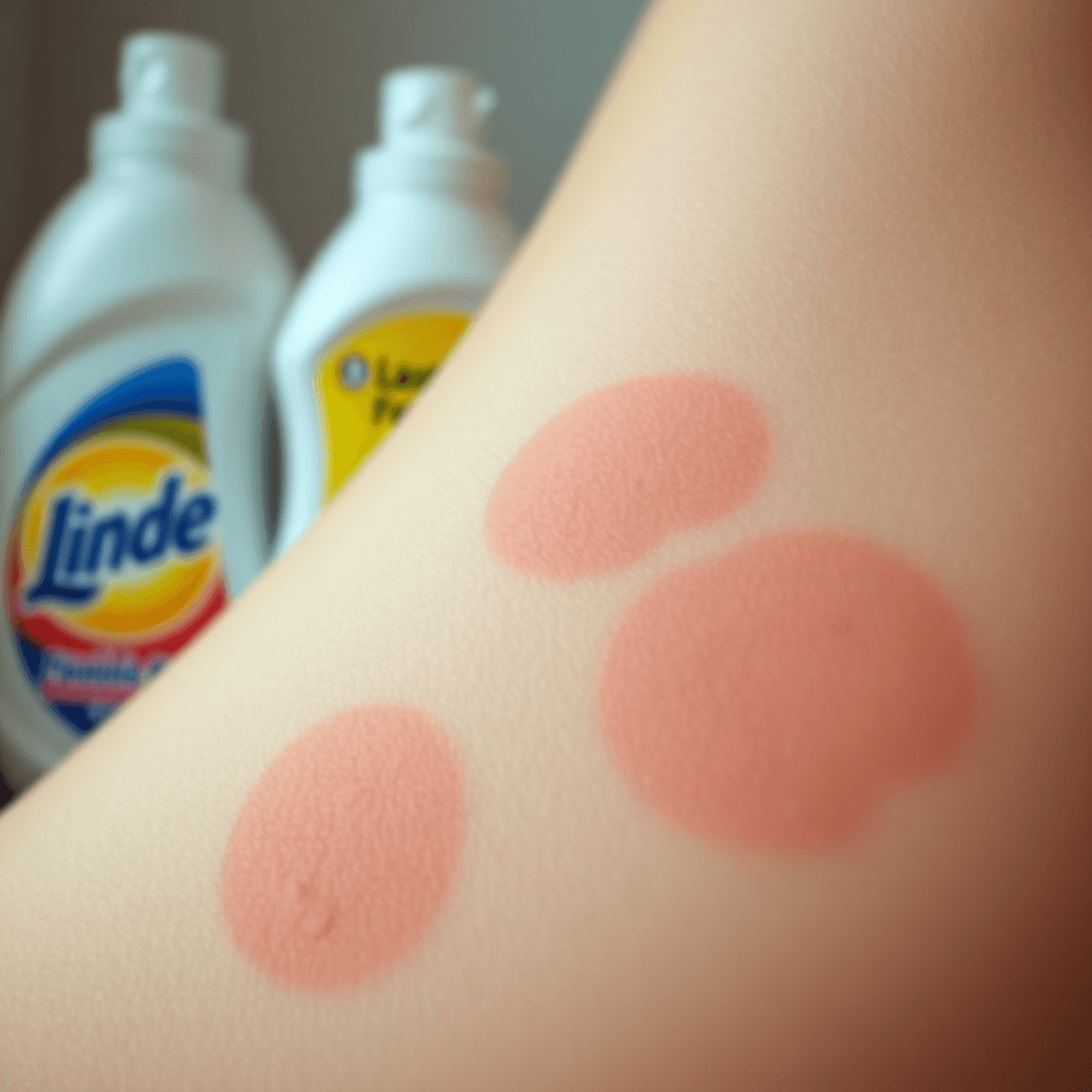Eczema Around the Mouth and Lips: Your Ultimate Guide

Introduction
Eczema is a common skin condition that affects millions of people worldwide. There are different types of eczema, each with its own symptoms. One specific type is eczema around the mouth and lips, also known as perioral eczema. This condition can be particularly challenging because it occurs in a visible area and can interfere with everyday activities such as eating and speaking.
To effectively manage and find relief from this condition, it is important to understand eczema around the mouth. It can cause discomfort such as dryness, redness, and itchiness. Therefore, being able to identify early signs and implementing suitable treatment methods is crucial. Taking care of eczema on the lips not only helps relieve physical symptoms but also boosts self-confidence by minimising visible flare-ups.
This guide aims to provide you with comprehensive insights into managing eczema around the mouth. We will explore various treatment options, lifestyle changes, and support networks that can empower you on your journey towards healthier skin.
Understanding Eczema Around the Mouth and Lips
Eczema, a common skin condition, is characterised by inflammation leading to itchy, red, and dry skin. It can manifest in various forms, each with distinct characteristics. Types of eczema include atopic dermatitis, perioral dermatitis, eczematous cheilitis, and lip licker’s dermatitis.
Perioral Eczema: Causes and Symptoms
Perioral eczema specifically affects the area around the mouth. It often presents as redness, dryness, and itchiness. The causes can be multifaceted:
- Genetic Factors: A family history of eczema or other allergic conditions might increase susceptibility.
- Environmental Triggers: Exposure to irritants such as fluoride toothpaste, spicy foods, and harsh weather conditions can exacerbate symptoms.
Understanding these triggers is crucial for managing perioral eczema effectively.
Related Conditions Affecting the Lips
Beyond perioral eczema, several related conditions can impact the lips:
- Perioral Dermatitis:
- Characterised by small bumps that form around the mouth area.
- Often triggered by topical steroids or certain facial creams.
- Eczematous Cheilitis:
- Specifically affects the lips.
- Symptoms include dry, cracked lips with possible blister formation.
- Lip Licker’s Dermatitis:
- Results from chronic lip licking which leads to irritation and inflammation.
- Presents with a distinctive red ring around the lips due to constant moisture exposure followed by drying out.
Recognising these variations helps in devising a tailored management plan for individuals experiencing eczema around the mouth and lips. Understanding these distinctions not only aids in identification but also plays a vital role in effective treatment strategies.
For those seeking relief from these conditions, incorporating all-natural ingredients into your skincare routine can be beneficial. Products such as the Il Bagno Body Wash for Eczema or the Crema Di Matteo Eczema Cream, both from 1936 Original's line of high-quality eczema products, are designed to provide relief from symptoms like dryness and itchiness while nourishing your skin's natural health. These products are suitable for all ages and made with 95% natural ingredients.
Identifying Symptoms of Eczema Around the Mouth
Eczema around the mouth, particularly atopic eczema, can manifest through a range of distressing symptoms. Early recognition of these symptoms is crucial for effective management and to prevent further complications. Here are some common indicators:
1. Red Rash Around the Mouth
This is often the first visible sign, characterised by a red or purplish bumpy rash encircling the mouth area. The rash may extend towards the chin and cheeks, causing discomfort and self-consciousness.
2. Dry Skin on Lips
A hallmark symptom, dryness on the lips can lead to flaking and peeling. The skin may become rough and scaly, resulting in an unattractive appearance.
3. Itchiness
Persistent itching is a common complaint among those experiencing eczema in this region. Scratching can worsen the condition, leading to sores or blisters.
4. Cracked Skin
In severe cases, the skin around the mouth may crack or split, causing pain and increasing the risk of infection.
5. Sores/Blisters
These can form due to prolonged irritation and scratching, further complicating the healing process.
Recognising these symptoms early aids in prompt intervention. Addressing them with suitable treatments can alleviate discomfort and prevent progression. Maintaining a keen awareness of these signs ensures timely steps are taken towards managing eczema effectively.
Discovering Causes and Triggers of Lip-Related Eczema
Understanding the causes of lip-related eczema is essential for effective management. This condition often results from a combination of genetic factors and environmental triggers.
Genetic Factors in Lip Eczema
- Family History: Individuals with a family history of eczema, asthma, or hay fever are more likely to develop lip-related eczema.
- Protein Deficiency: Genetic variations can lead to a deficiency in certain proteins that help maintain the skin's barrier function, making it more prone to irritation and inflammation.
Environmental Triggers
- Allergens and Irritants: Common culprits include spicy foods, fluoride toothpaste, and extreme temperatures. Overuse of certain lip balms and moisturisers can also exacerbate symptoms.
- Steroid Medications: Frequent use of hydrocortisone creams or steroid inhalers can trigger flare-ups.
Recognising these causes and triggers is crucial for managing Eczema Around the Mouth and Lips: Your Guide effectively. Adjusting lifestyle habits based on these insights can significantly reduce flare-ups and improve quality of life.
Finding Effective Treatment Options for Eczema on Lips
1. Topical Treatments: A Comprehensive Guide
Dealing with eczema around the mouth and lips can be a persistent challenge, but understanding the available treatment options is crucial to managing this condition effectively. One of the primary treatments for lip-related eczema involves the use of topical applications. These treatments are designed to directly target affected areas, providing relief from symptoms such as redness, dryness, and itchiness.
Corticosteroids
Corticosteroids are often the first line of defence in treating lip-related eczema. Available in varying strengths, these topical steroids work by reducing inflammation and suppressing immune responses in the skin. Here’s what you need to know:
- Benefits: Rapidly decreases inflammation, eases itching, and helps restore skin integrity.
- Potential Side Effects: Long-term use can lead to skin thinning, discoloration, or increased susceptibility to infections.
Calcineurin Inhibitors
When corticosteroids may not be suitable due to side effects or if they prove ineffective, calcineurin inhibitors offer an alternative. These non-steroidal anti-inflammatory creams or ointments act by inhibiting calcineurin, an enzyme that activates T-cells in the immune system:
- Benefits: Effective in reducing inflammation without causing skin thinning. Suitable for sensitive skin areas like lips.
- Potential Side Effects: Possible burning sensation or irritation upon application; however, this usually subsides with continued use.
It's essential to use these medications under the guidance of a healthcare professional who can prescribe the appropriate strength and duration based on the severity of your condition.
In addition to these prescribed treatments, certain over-the-counter (OTC) products can also complement your treatment plan. Look for products containing ingredients like colloidal oatmeal, known for its soothing properties, or emollients that help maintain moisture in the skin.
Tip: Choose products free from fragrances and other potential irritants to avoid exacerbating symptoms.
For those seeking natural remedies alongside traditional treatments, options like virgin oils—including coconut oil and jojoba oil—can offer safe hydration and barrier repair without adverse effects. These oils possess anti-inflammatory properties which can be beneficial in managing mild cases of eczema.
Remember that while topical treatments are highly effective for many individuals with lip-related eczema, it’s important to monitor your skin's response and consult with a dermatologist if symptoms persist or worsen. The right combination of medications and skincare practices will vary from person to person; hence personalised care remains key in successfully managing eczema around the mouth and lips.
2. Oral Medications: When Are They Necessary?
When treating eczema around the mouth and lips, topical treatments are often the first line of defence. However, in severe cases where these methods prove insufficient, dermatologists may prescribe oral medications to manage symptoms more effectively.
Oral medications for severe cases of lip-related eczema include:
- Antibiotics: Tetracycline, doxycycline, and erythromycin are commonly used to address any secondary bacterial infections that might exacerbate the condition.
- Low-dose Isotretinoin: Particularly effective for persistent eczema that does not respond to other treatments, this medication helps reduce inflammation and control sebum production.
The choice of oral medication depends on individual factors such as the severity of symptoms, patient history, and specific triggers. These treatments aim to provide relief when topical treatments for lip-related eczema are not enough, offering a comprehensive approach to managing this challenging condition. Consulting a dermatologist ensures that you receive personalised care tailored to your specific needs.
3. Non-Prescription Treatments and Home Remedies That Work!
Finding effective treatment for lip-related eczema involves exploring various options, including safe home remedies that can provide relief from discomfort. These remedies are a practical part of the broader strategy to manage this condition effectively.
Coconut Oil
Coconut oil is renowned for its natural moisturising properties, making it a popular choice for soothing dry and irritated skin. Its fatty acids help retain moisture, offering a protective barrier against environmental triggers that exacerbate eczema symptoms around the mouth.
Aloe Vera Gel
Aloe vera gel is another effective remedy known for its cooling and anti-inflammatory properties. It provides immediate relief from itching and redness, making it an excellent choice for managing skin irritation associated with lip-related eczema.
Colloidal Oatmeal
Colloidal oatmeal acts as a protective barrier on the skin, helping to lock in moisture while soothing irritation. It's often used in baths or as a topical paste applied directly to affected areas.
Virgin Oils
Other virgin oils like jojoba and sunflower oil can also be beneficial. They offer similar moisturising benefits as coconut oil, contributing to the overall reduction of dryness and irritation.
Before trying these remedies, consulting a healthcare provider ensures they align with your specific needs and do not interfere with other treatments you may be using. Additionally, exploring effective pain relief and management strategies can further enhance your comfort during this challenging time.
Lifestyle Changes to Manage Eczema Around the Mouth Effectively
Understanding how to manage flare-ups from diet or environment is crucial in reducing eczema symptoms around the mouth. Implementing strategic lifestyle changes can significantly improve your condition:
1. Dietary Modifications
Certain foods may trigger eczema flare-ups. Identifying and eliminating these irritants, such as spicy foods, can be beneficial. Incorporating anti-inflammatory foods like omega-3-rich fish, fruits, and vegetables might help soothe inflammation.
2. Avoid Known Irritants
Recognising and avoiding environmental triggers is essential. Common irritants include extreme temperatures, harsh winds, and allergens like pollen or dust. Minimise exposure to these elements whenever possible.
3. Hydration and Skincare Routine
Keeping your skin moisturised with gentle creams or ointments is vital. Choose products free from fragrances or harsh chemicals that may exacerbate irritation. You might also consider using natural products that not only moisturise but also help relieve inflammation. For instance, 1936 Original's range of skincare products are made with 95% natural ingredients sourced from the EU and designed to help reduce inflammation.
4. Stress Management
High stress levels can worsen eczema symptoms. Engaging in relaxation techniques such as yoga or meditation might aid in managing stress effectively.
5. Good Sleep Hygiene
Ensuring adequate rest supports overall health and aids in skin recovery. Establish a calming bedtime routine to promote better sleep quality.
Making these adjustments can play a pivotal role in managing eczema around the lips efficiently. Understanding personal triggers and adapting habits accordingly empowers you to take control of your skin's health.
When to Seek Professional Help: Consulting a Dermatologist
Recognising when to seek professional help is crucial for managing eczema around the mouth and lips effectively. If you observe persistent symptoms that do not improve with over-the-counter treatments or home remedies, it might be time to consult a dermatologist.
Signs Indicating a Need for Professional Intervention:
- Severe Redness and Inflammation: If the affected area becomes intensely red or swollen, it's wise to seek expert advice.
- Unmanageable Itchiness or Pain: Persistent discomfort that disrupts daily activities requires professional evaluation.
- Frequent or Worsening Flare-Ups: An increase in the frequency or severity of symptoms suggests the need for advanced care.
A dermatologist can offer specialised insights and recommend treatments tailored to your specific condition. In severe cases, they might prescribe biologics, which are injectable medications designed to target specific pathways in the immune system to reduce inflammation. Examples include Dupilumab (Dupixent) and Tralokinumab-ldrm (Adbry). These advanced options are typically considered when other treatments have not been effective.
Understanding when professional intervention is necessary not only helps in managing symptoms efficiently but also prevents further complications. A timely consultation with a dermatologist ensures that you receive appropriate care, enhancing your journey towards relief from eczema around the mouth and lips.
Building a Support Network: MyEczemaTeam Support Group
Navigating the challenges of lip-related eczema becomes more manageable with the right support network. MyEczemaTeam is a dedicated social platform offering numerous benefits to individuals dealing with this condition. Within this supportive community, you can connect with others who share similar experiences, exchanging valuable advice and coping strategies.
Benefits of Joining MyEczemaTeam:
- Emotional Support: Engaging with people who understand your struggles provides a sense of belonging and comfort.
- Shared Experiences: Members often share their own journeys, offering insights into managing symptoms and finding effective treatments.
- Practical Advice: Gain tips on lifestyle modifications, product recommendations, and other practical solutions to ease daily challenges.
- Updates on Treatments: Stay informed about the latest treatment options and advancements shared by fellow members or healthcare professionals.
Being part of such a network not only alleviates feelings of isolation but also empowers you with knowledge and encouragement from those who truly understand your journey.
Conclusion: Embracing Hope in Your Journey with Perioral Eczema
Managing perioral eczema can be challenging, but it's important to remember that you're not alone. There are many treatment options available that can help you find relief and comfort. Whether it's using topical treatments, taking oral medications, or exploring natural health approaches, there are ways to ease your symptoms.
Staying positive is crucial. Be patient and open-minded as you navigate this journey and try out different strategies. Connecting with support networks like MyEczemaTeam can offer valuable emotional support and shared experiences that enhance your journey.
This guide on "Eczema Around the Mouth and Lips" is here to empower you with knowledge and tools for effective management. Stay hopeful knowing that advancements in dermatology continue to bring promising solutions, and that your determination can lead to better well-being.
FAQs
What is eczema around the mouth and lips?
Eczema around the mouth and lips is a common skin condition characterized by inflammation, redness, and irritation in the perioral area. It can manifest as various symptoms including redness, dryness, itchiness, and cracking of the skin.
What are the symptoms of perioral eczema?
Symptoms of perioral eczema include a red rash around the mouth, dry skin on the lips, persistent itchiness, cracked skin, and sores or blisters that may form due to prolonged irritation and scratching.
What causes lip-related eczema?
Lip-related eczema can be triggered by several factors including genetic predisposition, environmental irritants such as spicy foods or harsh skincare products, and allergens. Identifying these triggers is essential for effective management.
What treatment options are available for eczema on the lips?
Treatment options for eczema around the mouth include topical treatments like corticosteroids and calcineurin inhibitors, oral medications when necessary, as well as non-prescription treatments such as coconut oil, aloe vera gel, colloidal oatmeal, and virgin oils.
How can lifestyle changes help manage eczema around the mouth?
Lifestyle changes that can help manage eczema include dietary modifications to avoid triggering foods, recognizing and avoiding known irritants, maintaining hydration through a proper skincare routine, managing stress levels, and ensuring good sleep hygiene.
When should I seek professional help for perioral eczema?
You should seek professional help from a dermatologist if you experience severe symptoms that do not improve with over-the-counter treatments or if your condition significantly affects your quality of life. Consulting a professional can provide tailored treatment options.










